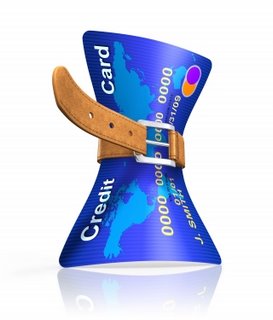 If you feel like your credit card issuers are partly to blame for your financial woes, you aren’t alone.
If you feel like your credit card issuers are partly to blame for your financial woes, you aren’t alone.
If you’ve paid all your bills on time and have checked your credit report for errors or identity theft and found all OK – your lower scores are a direct result of credit card issuers lowering your available credit limits. And in fact, if you have a few late payments, or have an over-limit charge, your card issuers may also be to blame, because they’ve been sneaky.
And, if you’re struggling to pay down debt because your interest rates have risen, it could be a direct consequence of those actions.
The good news is: Federal Regulators have taken notice and have passed new regulations to halt some deceptive and credit-destroying practices.
For instance, issuers will no longer be allowed to raise the interest rates on amounts you already owe unless your payment is 30 days late. At present, they can raise your rate on your entire balance – for no reason except that they choose to do so.
They also won’t be allowed to raise rates or lower credit limits without prior notice. Right now, consumers need to check their statement each month to see what their current interest rate and credit limit really is.
Issuers will also be required to mail your statement earlier – giving you plenty of time to receive the statement and mail back the payment. A current practice of mailing it just a few days prior to the payment date has put many in the “late pay” category through no fault of their own.
Failing to inform consumers well in advance of lowering credit limits has put many over their limits – triggering over-limit charges as well as black marks on their credit reports.
Other sneaky little credit card practices have included setting a due date, but showing in fine print that the payment is due by a certain time of day – such as noon. Thus consumers who pay on line and pay on the due date may be an hour late – triggering a late payment fee.
Credit card issuers also change the due dates – so consumers who have always mailed a payment on the 20th may find that their due date has changed and the payment must be there by the 20th.
While the new regulations are good news, the bad news is that the changes aren’t scheduled to go into effect until July 2010. There is a movement afoot to move that date up, but until it happens, here’s what you must do to protect yourself:
• Always open and read your statement the day it arrives.
• Check for changes in due date, interest rate, minimum payment.
• Read the fine print – if your payment is due on the 20th, check to see what time of day on the 20th.
• If you see an increase in interest rate or a decrease in your available credit, call and ask to opt out of that change. Some card issuers will agree in order to keep your business.
• If they refuse, see if you have room on a different card to transfer the balance.
• Pay down all debt as fast as possible.
